Behind the News
Behind the News: All the backstories to our major news this week
Published
10 months agoon

Over the past week, there were lots of important stories from around the African continent, and we served you some of the most topical ones.
Here is a rundown of the backstories to some of the biggest news in Africa that we covered during the week:
1. Gabon President, Ali Bongo continues family’s sit-tight syndrome
In continuing with his family’s stranglehold on power, Gabonese President, Ali Bongo announced during the week that he would be seeking re-election which will extend his family’s over 50-year dynasty in the country.
With the decision to seek re-election in the August polls in the country, Bongo will continue the family’s dynasty and their 56-year grip on power in the Central African country after their father, Omar Bongo died in power in 2009 following his 42-year rule.
While making his intention known on Sunday, July 9, Bongo told his supporters that “because nothing matters more than your success, I am announcing today that I am a candidate.”
The Bongo family has been in the corridors of power since independence, with many of them holding positions of power at different levels.
The president himself was Minister of Foreign Affairs from 1989 to 1991, and before then, had represented Bongoville as a Deputy in the National Assembly from 1991 to 1999, and was Minister of Defence from 1999 to 2009.
His sister, Pascaline was also a key figure during the administration of their father, while other siblings have also played key roles in the administration.
2. More sanctions for companies linked with Sudanese conflict
On July 12, we brought you a report of the United Kingdom joining the United States to impose sanctions on businesses linked with armed groups behind the ongoing deadly civil war in Sudan.
In a statement by Foreign Minister James Cleverly, the UK government mentioned six commercial entities as those to be sanctioned following their connection to the war which has so far claimed the lives of over 3,000 people while another three million have been displaced.
“We simply cannot afford to sit-by and watch as money from these companies, all funding the RSF (Rapid Support Forces) or SAF (Sudan Armed Forces), is spent on a senseless conflict,” Cleverly said.
“We will continue to do all we can to support a meaningful peace process, stop the violence and secure free humanitarian access.”
The companies associated with the RSF that have been sanctioned include, Al-Junaid, which the British government said had provided “at least tens of millions in financial backing for the militia,” GSK Advance Company Ltd, and Tradive General Trading.
Others include, Defense Industries Systems, Sudan Master Technology and a unit of DIS, Zadna International Company for Investment Ltd, said to be associated with the SAF, the statement said.
Before the latest round of sanctions, the US had sanctioned companies like Algunade, which had in the past bypassed central bank controls to export tens of millions of dollars of gold to Dubai and is said to be a Sudanese holding company controlled by RSF Commander, Mohamed Hamdan Dagalo and his brother, and Tradive General Trading L.L.C.
3. Davido gets his Day in US City of Houston
On July 7, the US city of Houston honoured Nigerian Afrobeats music star, David Adeleke, popularly known as Davido, when the city Mayor, Sylvester Turner, declared the day as “Davido Day” in “celebration of the exemplary feat” in the field of music.
While declaring every July 7 as “Davido Day,” Turner made special reference to the singer’s “significant contributions to the music industry and his recent electrifying sold out performance at the Toyota Center, Houston.”
The “Unavailable” crooner joins another Afrobeats star, Wizkid, who was also honoured by the Mayor of Minnesota, Mark Dayton, who declared October 6 as “Wizkid Day” after he made history as the first African artiste to sell out the Skyway Theatre in Minneapolis, Minnesota, during a show in 2018.
4. 87 bodies discovered in mass graves in Sudan
On July 13, the United Nations announced that its officials in Sudan discovered the bodies of 87 people in a mass grave, and accused the Rapid Support Forces (RSF) paramilitary of carrying out the killings.
The UN High Commissioner for Human Rights, Volker Türk, who made the announcement in a report, said 37 bodies were discovered in the West Darfur region on June 20, and another 50 at the same site the next day, with women and children among them.
Türk expressed his dismay at the discovery, saying he was “appalled by the callous and disrespectful way the dead, along with their families and communities, were treated.”
Since the conflict began, hundreds of civilians have been killed, and thousands of others displaced. Several peace efforts have failed to yield fruit. Several ceasefire arrangements have failed because the parties refused to honour the terms.
These latest discoveries awaken the ghosts of ethic-based killings and raise serious fears that the conflict may be headed in an even more horrific direction.
5. Zambian female national team coach accused of sexually abusing players
We also brought to you a report of the coach of the Zambian women national team, Bruce Mwape, who was accused of sexually abusing his players before selecting them for matches.
The allegations against Mwape by some senior players in the team led to the Zambia Football Association (FAZ) and world football organising body, FIFA, opening an investigation against him which could lead to further sanctions.
The investigation was opened after a player claimed that Mwape abused his position as the coach by sleeping with his players before selecting them for matches.
“If Mwape wants to sleep with someone, you have to say yes. It’s normal for the coach to sleep with the players from our team,” the player who wished to remain anonymous had told journalists.
Another player also revealed cases of emotional blackmail from Mwape, saying players were threatened if they dared to say anything about what happened.
The accusation was then brought to light when the FAZ informed FIFA in September 2022 of an open investigation concerning Mwape who has been the women team’s manager since 2018, as well as the coach of the female U-17 team, Kaluba Kangwa.
FAZ chairman, Andrew Kamanga, had said of the allegations in October 2022:
“We prefer that an independent body such as FIFA should handle investigations. We are planning to serve sanctions. We have enough rules and regulations within football to be able deal with this.”
You may like
-


Zambian activist highlights ongoing threats to media freedom on World Press Freedom Day
-
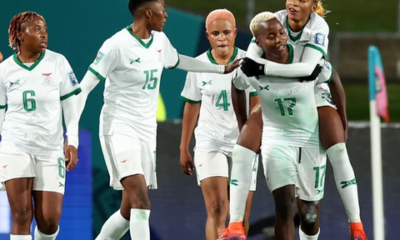

Why Zambia’s women national team could miss Olympics
-


Religious leader, Luchile, notes improvements in media freedom but faults online media abuse
-


Clergyman raises concern over abuses associated with digital rights and freedom of expression
-
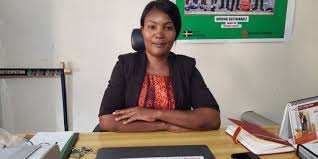

Conservationist, Kearns, names intolerance and digital media abuse as threats to media freedom
-


Behind the News: All the backstories to our major news this week
Behind the News
Behind the News: All the backstories to our major news this week
Published
5 days agoon
April 28, 2024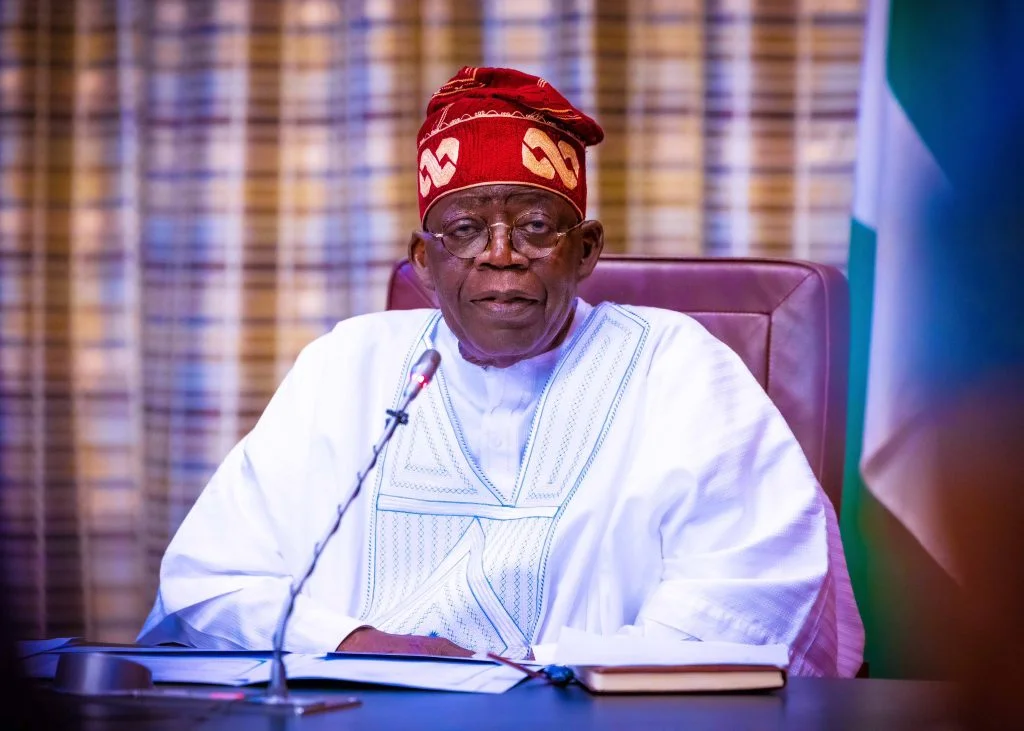
Over the past week, there were lots of important stories from around the African continent, and we served you some of the most topical ones.
Here is a rundown of the backstories to some of the biggest news in Africa that we covered during the week:
1. Renewed Hope: Tinubu’s regular sing-song and the sad reality of Nigeria
During the week in review, Nigeria’s President Bola Tinubu was once again at his rhetorical best when he pronounced the all the tough policy decisions and reforms he has undertaken since coming into office almost a year are have been in the best interest of Nigerians and the good of the country.
Tinubu who spoke during a bilateral business session with Dutch Prime Minister Mark Rutte at the Hague in the Netherlands, said every of his decisions were taken with the interest of his fellow citizens at heart.
He reiterated that his policies which have caused pains and anguish for Nigerians were in their best interest.
“I am a determined leader of my people. I am ever ready to take tough decisions in the best interest of the people, even if with initial pains,” Tinubu said.
“I have and will continue to take the difficult decisions that will benefit our people, even if there is short-term pain,” he added.
But beyond the regular promises of better days ahead by Tinubu and his team, the reality on ground in the country does not seem to align with so much optimism.
The first sign that things were going to be tough was when Tinubu pronounced the end of fuel subsidy in his inaugural address to the nation on May 29, 2023, without as much of a plan to ameliorate the anticipated economic crisis that was to follow.
Despite later attempts to provide some succour and buffers to cushion the effects of the subsidy removal, things have gone from bad to worse with the cost of living rising through the roof.
Inflation has gone up to an all time high of 30.20% according to the Nigeria Bureau of Statistics while prices of basic goods have gone beyond the reach of the average Nigerians, many who find it difficult to provide for their families.
But to President Tinubu, the pains and hardship Nigerians are currently going through will soon be a thing of the past because, according to him, his “tough policies” would yield positive results in the end.
“We have gone through the worst of the storms. I am unafraid of the consequences once I know that my actions are in the best long-term interests of all Nigerians,” he posited.
Nigerians are indeed waiting patiently for the fulfilment of these promises and are looking forward to a time they will go back to living a normal life again!
2. Discriminatory Chinese supermarket meets its match as Nigerian govt shuts mall
A Chinese supermarket located in the heart of Abuja, Nigeria’s capital, ran into hot water when the Federal Competition and Consumer Protection Commission (FCCPC), shut it down following allegations of discrimination against Nigerian shoppers.
Before the action of the government agency, a report had indicted that the supermarket located within the premises of the China General Chamber of Commerce in Abuja, was in the habit of barring Nigerian citizens from shopping in the mall.
Following the exposè which came with video evidence and investigations carried out by the FCCPC turned out to be true, officials of the agency promptly moved in and shut down the mall.
Director for Surveillance and Investigation of FCCPC, Boladale Adeyinka, who led the team, said they took the action was in response to a viral video showing Nigerians being discriminated against and not being able to get into an Abuja supermarket.
“The essence of the surveillance and investigation that we conducted today is to verify the allegations and the content of that viral video,” she told journalists during the exercise.
That was not the first time foreign business ventures have discriminated against Africans in their own country by refusing them their services.
A few years ago, a Chinese restaurant in Lagos was in the news for refusing to serve a Nigerian couple and it took the intervention of the state government for normalcy to return to the outfit after some Nigerian youth decided to vent their anger on the eatery.
Many Chinese, Lebanese and other companies run by foreigners in Nigeria have been found to discriminate against their Nigerian staff and customers but as usual, the powers that be have always turned a blind eye to such allegations, largely because the business owners have their plugs in the right places while the victims are always at the lower rung of the society.
3. Runaway Binance executive reportedly nabbed in Kenya
It was reportedly a bad day in the office for an executive director of global cryptocurrency firm, Binance Holdings Limited, Nadeem Anjarwalla, who had escaped from lawful detention in Nigeria, as he was arrested in Kenya.
Anjarwalla, a British-Kenyan citizen was arrested on arrival in Nigeria on February 26, along with another Binance official, Tigran Gambaryan, on allegations of tax evasion, money laundering and other charges.
But on March 22, Anjarwalla made an audacious escape from a guest house where he and Gambaryan were being held and was promptly declared wanted with the Nigerian authorities engaging the services of Interpol to help track him down.
The manhunt for Anjarwalla was ended when he was arrested in his hideout by a combination of Kenyan police and operatives of the Interpol.
The Kenya Police Service, in a statement confirming the arrest of the fugitive, said the fleeing Binance executive was arrested in “conjunction with the International Criminal Police Organisation (Interpol) and moves were being perfected for his extradition to Nigeria.
But beyond the arrest of Anjarwalla and the embarrassment it caused the country’s security agencies, a lot of questions have arisen from the episode.
Many Nigerians have continued to wonder how he managed to escape from the so-called safe house he and his colleague were being held.
How could Anjarwalla stage such an escape without the active connivance of some security officials who must have had their palms greased?
How did he manage to get a replacement passport to leave the country since his original passport had been seized by the Economic and Financial Crimes Commission upon his arrest?
Questions, and more questions have continued to rise and Nigerians are waiting for answers, if they will come at all.
4. Zambian CSO blames media polarisation for biased reportage
The Executive Director of a Zambian civil society organisation, Chama Mwansa, has blamed the polarisation of the media for biased coverage and reportage in the country.
Mwansa who is the ED of the Chandarika Women and Youths Foundation, in an interview with Zambia Monitor, said the media was balkanized between private and state-owned media outlets which has led to a bias in news coverage.
“The media plays a crucial role in society. Media freedom allows for comprehensive coverage of various perspectives, whether from the opposition or the ruling party,” she said in the interview.
She also harped on the importance of media freedom, freedom of speech, and digital rights in promoting social and economic development, and emphasized on the importance of media partnerships in facilitating coverage of events.
Mwansa’s observations on the polarisation of the media industry in her country can also be replicated in many African countries where the media is gagged and practitioners are made to look like the dregs of the society.
In many African countries, journalists are seen as dangerous species with many of them treated with disdain. Many journalists in different parts of the continent have been abducted, brutalized and killed for just doing their jobs which have constantly raised the question on the safety and freedom of journalists.
5. Al Ahly, Esperance in clash of titans for CAF Champions League trophy
For the fourth straight seasons, two of Africa’s most successful clubsides, Al Ahly of Egypt and Esperance of Tunisia, will clash in the final of the TotalEnergies CAF Champions League scheduled for next month.
Al Ahly which is the current holders of the title and their long-standing rivals Esperance, booked their places in the final in dramatic fashions to earn their places in the final of Africa’s epic football tournament.
Al Ahly cruised past former champions TP Mazembe of the DRC 3-0 in their two-legged semi final tie, while Esperance defeated another former winner, Mamelodi Sundowns of South Africa, running out with a 2-0 aggregate victory.
Al Ahly, winners of the five of the last seven editions of the CAF Champions League, will be aiming for her 12 trophy when they visit Esperance for the first leg in Rades on May 18, while the Tunisian giants will be gunning for a fifth Champions League title, which clearly puts the two teams as the best in the continent.
The second leg will hold in Cairo a week later, which, on paper, gives Ahly a sense of home advantage.
- But however it turns out, there will surely be fireworks as the two teams battle for the glory in the two-legged final and surely, whichever team comes out tops will be the best for the African continent.
Behind the News
Behind the News: All the backstories to our major news this week
Published
2 weeks agoon
April 22, 2024
Over the past week, there were many important stories from around the African continent, and we served you some of the most topical ones. Here is a rundown of the backstories to some of the biggest news stories in Africa that we covered during the week:
Nigeria’s big feat against meningitis
Nigeria made a significant step in its fight against the World Health Organization (WHO) announced on Monday that Nigeria is the first country in the world to give out Men5CV, a “revolutionary” new vaccine. People are getting sick more in Nigeria than anywhere else in Africa. They say that the number of cases each year went up by 50% in 26 African countries that are known to have a high risk of meningitis.
Nigeria is the first country in the world to have given this vaccine which protects against five strains of the meningococcus bacteria. The Vaccine Alliance (Gavi) pays for the vaccine and emergency vaccination operations.
In Nigeria, between October 1, 2023, and March 11, 2024, there was an outbreak of Neisseria meningitidis (meningococcus) serogroup C that caused 1742 suspected cases of meningitis, 101 confirmed cases, and 153 deaths in seven of the country’s 36 states. These states were Adamawa, Bauchi, Gombe, Jigawa, Katsina, Yobe, and Zamfara.
Gavi also pays for the global meningitis vaccine stockpile and helps low-income countries get regular meningitis shots. Nigeria is one of 26 countries in Africa where meningitis is very common. It is in an area called the African Meningitis Belt. The number of meningitis cases reported each year in Africa rose by 50% last year.
Being a serious infection, meningitis makes the membranes (meninges) that cover the neurons in the brain and spinal cord swell up. Viral, bacterial, fungal, and parasite pathogens are some of the things that can cause meningitis. Headaches, fevers, and stiff neck are common signs. Bacterial meningitis is the worst kind. It can also lead to septicemia, which is blood poisoning, and people who get it can become severely disabled or die within 24 hours.
Besides Nigeria’s meningitis vaccine campaign, the international summit on meningitis in Paris will be a big step toward ending the disease as leaders will meet to celebrate progress, discuss problems, and decide what to do next.
Britain /Rwanda migration deal remains stuck
Rishi Sunak’s plans to send asylum seekers to Rwanda took another defeat this week when they were turned down again by the upper house of parliament in Britain. The parliament came up with changes that would slow down the policy but not stop it. The leader of the country thinks this will help his party win the next election.
Last year, the British government said it was going to send thousands of refugees back to the East African country. This was done to stop people from trying to get protection by crossing the English Channel in small boats from France. Part of an agreement worth £148 million is the idea.
Despite a Supreme Court’s ruling against the controversial move, Sunak has pushed to enact the law through parliament, praying that British courts should consider Rwanda a safe place to visit and that people should only be able to appeal in very rare situations. Europeans have become worried about people coming in illegally from the Middle East and Africa these days. As of June 2023, a record 45,000 people had flown in small boats across the English Channel.
Since Monday, when the House of Commons turned down the House of Lords’ second set of plans to change the new laws, they tried again. The House of Lords is Britain’s appointed upper house. But it’s not likely that the move will stop the bill from being passed this week. If it does, it will become law.
Ahead of the elections later this year, Sunak has put a lot of political capital into the Rwanda plan. He says it will help him keep his word to stop small boats carrying thousands of people who are trying to get into Britain illegally.
About 14.4% of the UK’s population, or 9.5 million people, were born outside of the UK in 2021. A record 45,000 people, mostly from France, crossed the English Channel in small boats last year. More than 11,000 people have been here so far this year. Getting rid of illegal immigration is one of Prime Minister Rishi Sunak’s top objectives.
Burkina Faso takes further steps from France
West African country, Burkina Faso has continued its diplomatic stance against former colonialist, France as it expelled three French diplomats allegedly being involved in actions against the government. The West African country, under military rule like five others in the subregion in a letter sent April 16 to the French embassy said that the three diplomats, two of whom were named as political advisers, were told they were not welcome in the country and had 48 hours to leave.
Sources quoted by Reuters said the officials were kicked out because they met with people from the public. There have been five coups in the area in the last three years. Most of them were linked to ties with France. The latest coup in Niger could make things harder for food markets in Nigeria and other West African countries, the World Bank said not long ago.
Around the world, rights groups, and other interest bodies claim that the junta restricts the freedom of speech and is scaring off critics while it tries to deal with a security crisis caused by rebels with ties to Iran and Al-Qaeda.
Last year, the government announced that it had suspended the 2018 military accord with France, though it still wanted support in the form of equipment. France deploys about 400 special forces soldiers in Burkina Faso, which the military government rules, but relations have deteriorated and tensions have soared in recent months.
Burkina Faso is one of the poorest in the world, and over the past ten years, a war that started in Mali and spread across the Sahel has killed thousands of people. People in the country are more against France now than they were a few months ago because they think that France’s armed presence has not made things safer, expelling its diplomatic might just be another low in their relations as the wave against the former European colonialists continues across the subregion.
Nigeria: ‘World beater’ Onakoya sets new chess record
Nigerian chess prodigy, Tunda Onakoya began an attempt at a 58 hours play of the game to surpass the world record of 56 hours, nine minutes, and 37 seconds, which was set by the Norwegian duo of Hallvard Haug Flatebø and Sjur Ferkingstad in 2018. Onakoya has broken the record set in 2018 by 56 hours. He also wants to raise $1 million for his charity, “Gift of Chess and Chess in Slums Africa,” which he has used to help vulnerable children in Africa.
For 60 hours straight, Onakoya played in Times Square in New York City to raise money for the schooling of poor children in Africa as he played from Wednesday morning until early Saturday morning, having been inspired by the huge number of people who wanted to see him succeed.
Within Nigeria, Onakoya is well known for starting the Chess in Slums project in 2018 in Ikorodu, which is on the outskirts of Lagos. Often outcast young people, many of whom don’t go to school and work to support their families, can learn to play chess at the organization with the country having one of the highest rates of child absence from school in the world, with more than 10 million kids of school age not going to school.
The Guinness Book of World Records has not yet confirmed the new record. This process can take up to two weeks. Whatever the case, Onakoya’s accomplishment has already had a big effect, showing that even from “corners of disadvantage,” big changes are possible.
EDITOR’S PICK


São Tomé and Principe to demand reparations from Portugal
The education and cultural minister of Sao Tome and Principe, an African island nation, announced on Thursday that the government...


Nigeria’s Insurance Corporation raises maximum deposit coverage from N500k to N5m
The maximum deposit insurance coverage levels for Deposit Money Banks has been raised by the Nigeria Deposit Insurance Corporation (NDIC)...


Zambian activist highlights ongoing threats to media freedom on World Press Freedom Day
As the world commemorates World Press Freedom Day on Friday, a youth activist from the Young Women Christian Association (YWCA)...
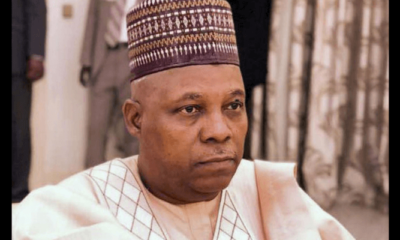

Nigeria’s economy will witness positive changes after painful sacrifice— VP Shettima
Nigeria’s Vice President, Senator Kashim Shettima, has told Nigerians to look at the bigger picture as the country’s economy will...


Nigeria’s food delivery startup Chowdeck raises $2.5m to optimise operations
Nigeria’s on-demand food delivery startup, Chowdeck, has announced securing the sum of $2.5 million in seed funding that will enable...
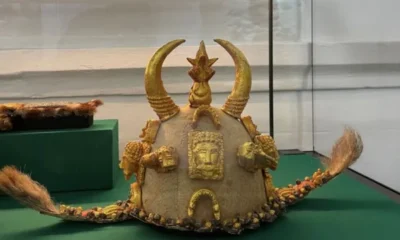

Ghanaians celebrate return of Asante Gold artefacts looted by British
Ghanaians, especially those from the ancient Asante region, have been in joyous mood as they flocked to the Manhyia Palace...


Why Zambia’s women national team could miss Olympics
Zambia’s women national football team is on the verge of missing out on playing at the Paris 2024 Olympic Games....


Religious leader, Luchile, notes improvements in media freedom but faults online media abuse
In this ongoing conversation to amplify voices on media freedoms, freedom of speech, and digital rights, we feature, Maxwell Luchile,...
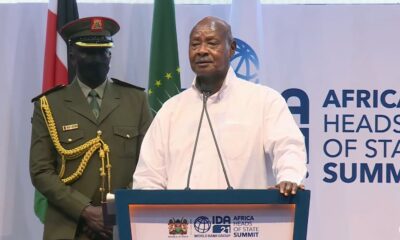

Video: Uganda’s Museveni urges African leaders to verify true motives behind IMF, W’Bank loans
In this video, Ugandan President, Yoweri Museveni, urged African leaders to verify the true intentions of multilateral lending institutions towards...


Nigerian banks close over two million accounts
At least two million bank accounts have been closed by different commercial banks in Nigeria following the failure of their...
Trending
-
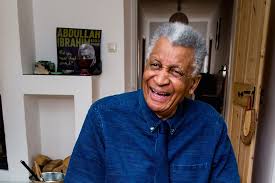
 Culture2 days ago
Culture2 days agoSouth African Jazz great Abdullah Ibrahim to embark on world tour at age 90
-

 Tech2 days ago
Tech2 days agoTanzania’s horticultural industry gets $2.1m grant from TradeMark Africa to boost market expansion
-

 Tech19 hours ago
Tech19 hours agoNigeria’s food delivery startup Chowdeck raises $2.5m to optimise operations
-

 Sports2 days ago
Sports2 days agoKenya unveils ‘killer-squad’ for Paris Olympics marathon Ahead of the 2024 Paris Olympic


